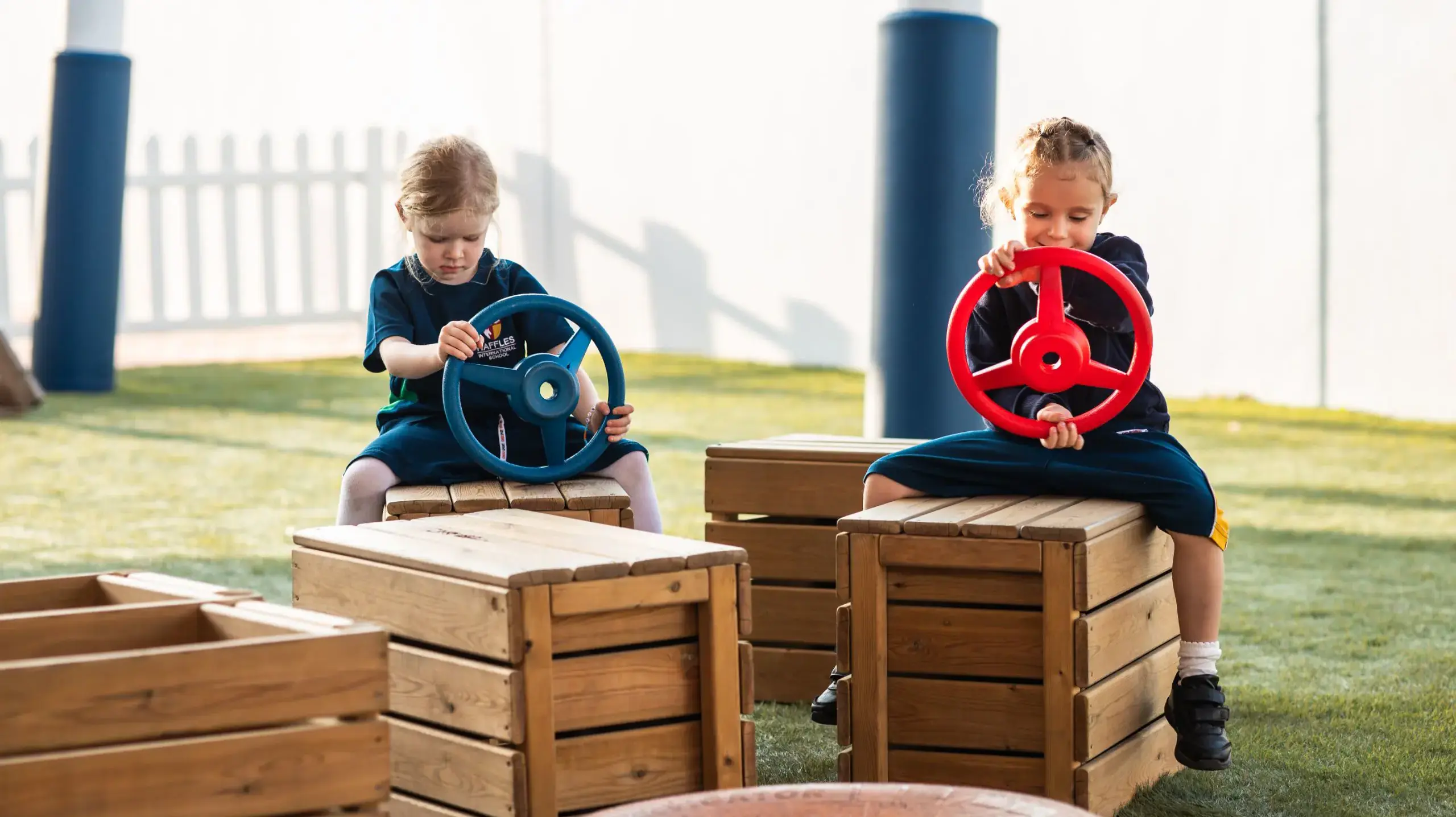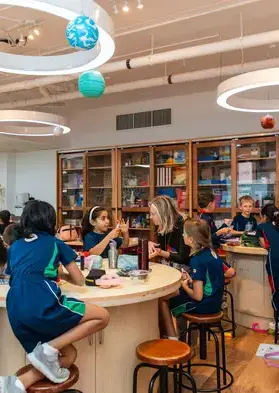primary
Students in the Primary School at RIS (Years 1-6) study an exciting and inspiring curriciulum built firmly upon the foundations of the National Curriculum for England. This curriciulum is broad and allows our students to pursue many passions and interests including in the subjects of English, mathematics, science, Information Technology, art, music, languages and Physical Education.
Literacy is an essential element in all curriculum areas and teachers ensure that students who are new to learning the English language make swift progress, while those who are already proficient in English are suitably stretched and challenged. Our students thrive across the curriculum, develoiping their mathematical, scientific, geographical, artistic musical and physical literacy as well as making rapid and significant progress in reading, writing, speaking and listening in English.
Throughout primary, students learn Arabic as a first or additional language and Muslim students are taught Islamic Studies. From Year 2, Moral Education and Social Studies is introduced which explores ethics, world history and geography. All these subjects follow the UAE National Curriculum.
One of our aims in the Primary School is to help and encourage students to make connections as their young minds are developing. To this end, teachers plan lessons with cross-curricular themes and links to the ‘real world’. Teachers plan creative, flexible lessons that engage students’ different senses and challenge each child to connect prior learning with current concepts and work at their own pace with the encouragement, guidance, and support of their teachers.
I am truly honored and beyond grateful to be partnered with you all on this learning journey.
Parent of 4 children in the Primary school, March 2024
| English as an additional language |
|---|
|
Cambridge English (as an Additional Language) enables learners to develop practical language skills and build their confidence in communicating in English. This curriculum aids learners’ speaking, listening, reading and writing skills in English. The Cambridge English exams use a range of scores to help support learners to be successful. EAL students attend English Language Acquisition classes which are designed to develop both language skills and subject knowledge. English as Additional Language (EAL) teachers work closely with subject teachers to support the needs of English language learners. |
| MATHEMATICS |
|---|
| Our mathematics curriculum follows White Rose Maths which is in line with the UK National Curriculum and explores five content areas: number, geometry, measure, handling data and problem solving. This curriculum focuses on principles, patterns, systems, functions and relationships so that learners can apply their mathematical knowledge and develop a holistic understanding of the subject. |
| science |
|---|
|
This curriculum framework covers four content areas: scientific enquiry, biology, chemistry and physics. Scientific enquiry is about considering ideas, evaluating evidence, planning, investigating, recording and analysing data. Environmental awareness and some histories of science are also part of the curriculum. |
| COMPUTING |
|---|
|
Our computing curriculum introduces learners to the key applications they need to achieve computer literacy and to understand the impact of technology on their daily lives. Learners develop key skills in a range of applications including word processing, computer graphics, databases, spreadsheets, email, internet, presentations, video / animation and web authoring. They also consider wider issues such as internet safety and adapting their work to the audience. From Year 5, STEM lessons also take place where students learn valuable skills in coding and programming. |
| ASSESSMENTS |
|---|
|
The National Curriculum offers integrated assessment, helping schools to check development and give feedback throughout the year. At RIS we use integrated assessments to monitor progress. All primary students are assessed by their teachers on a day-to-day basis to provide feedback about their next steps and to inform teachers’ planning. GL Progress Tests are taken in Years 4 to 6 annually, to assess performance and report progress to students and parents. NGRT reading tests are taken from Years 2 to 6 at three set points throughout the year. |
| NON-CORE AREAS |
|---|
| Within the Areas of Physical Exercise, Music and Arts the curriculum is based on versions of the English National Curriculum. The Foreign language programme offers French, Spanish and Mandarin as options from Year Three. Additionally, RIS has the provision for Mother Tongue Programmes in French, Spanish, Hindi and Russian. |
I just want to say that we’re really pleased to be part of the RIS community. Right from the top management to the teachers, teaching assistants, admin and the security, it is a wonderful school and we would recommend RIS to any parent looking for an all-round education for their child
Year 3 Parent, March 2024







